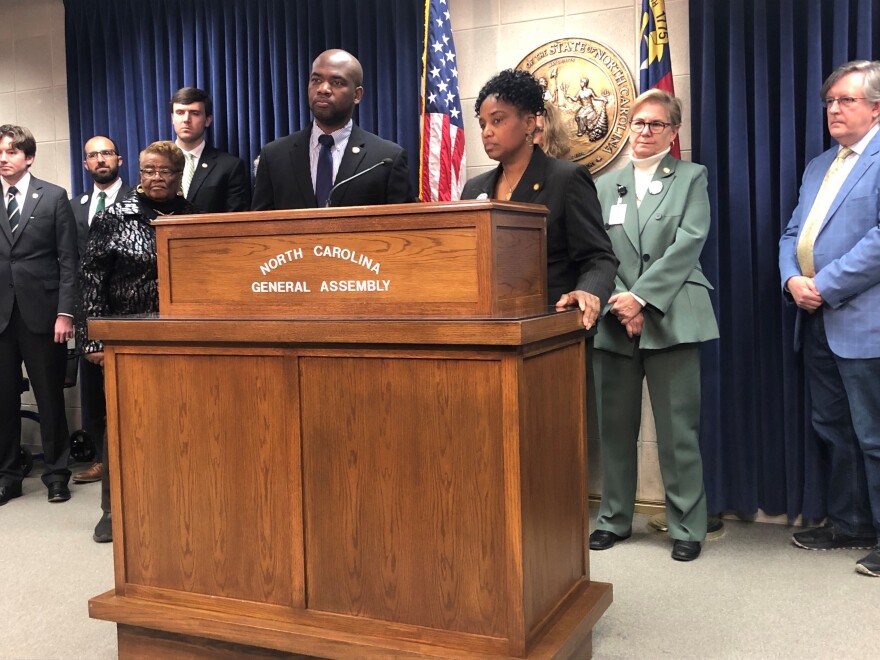In 2021, Gov. Roy Cooper — a Democrat — vetoed a Republican-sponsored bill called the Election Day Integrity Act.
Cooper called the bill's title ironic. He said election integrity means counting every single vote and that the GOP-backed measure would do the opposite by eliminating a three-day grace period for counting properly postmarked mail-in ballots that arrive after Election Day.
But state Sen. Ralph Hise, a Republican from Mitchell County in the mountains of western North Carolina, said the legislation is meant to protect the ballot box for eligible voters.
"To make sure that when someone does vote that their vote is not canceled out or made irrelevant by someone who is not eligible to vote casting a ballot," Hise said in an interview with WUNC.

Hise and his fellow GOP lawmakers resurrected the bill this session. And now, Republicans are just one seat shy of an outright veto-proof legislative majority.
No matter that post-election audits and ballot counts show year after year that individual voter fraud occurs so rarely as to have zero effect on election outcomes, Republicans still persist in their drive to clamp down on the virtually non-existent problem.
When it comes to state elections law, the partisan divide at the North Carolina General Assembly has never been wider.
Democrats in the state legislature see the real threat to election integrity as those very GOP efforts to fight a phantom problem.
"The conservative members of the General Assembly are so afraid of voters' power that they are working to pass laws that limit our chance to cast our votes and to have that vote be counted," said Sen. Kandie Smith (D-Edgecombe, Pitt) at a news conference to unveil companion House and Senate bills aimed at deterring voter intimidation, providing online voter registration, setting hours for early and in-person voting on weekends, and creating a less partisan redistricting process.
"So that voters can know and trust that they, and they alone, have the power to choose their elected officials," Smith said.
The Democrats' bills will likely go nowhere in the Republican-controlled legislature. But House Minority Leader Robert Reives (D-Chatham, Randolph) said it is still important for lawmakers in his party to get their message out.

"The importance is reminding people that this is an issue because I think when your voices get quieted then that's when you have real problems," Reives told WUNC.
Democrats also oppose a House Republican bill that would put a referendum to voters on a proposed Constitutional Amendment to limit in-person early voting to just seven days.
Early voting, which currently lasts more than two weeks, has proven popular with North Carolina voter across the political spectrum. In the 2022 midterm general election, North Carolina voters who cast ballots at one-stop early voting sites outnumbered in-person voters on Election Day by about 27%. And the margin was even greater for the 2020 general election, when North Carolina one-stop voters outnumbered in-person voters on Election Day by more than 4 to 1.
The stark difference in partisan views on elections law is not lost on Hise, who contends that Republicans focus more on protecting the ballot box than what he called "blind expansion" of ballot access.
The real question is not if — but when — the GOP's Election Day Integrity Act bill gets to Cooper's desk, will Democrats hold together to sustain his veto a second time?
Copyright 2023 North Carolina Public Radio. To see more, visit North Carolina Public Radio. 9(MDAzNzE4NjE2MDEyNDcxNzIzNTk2MDZlOQ004))


